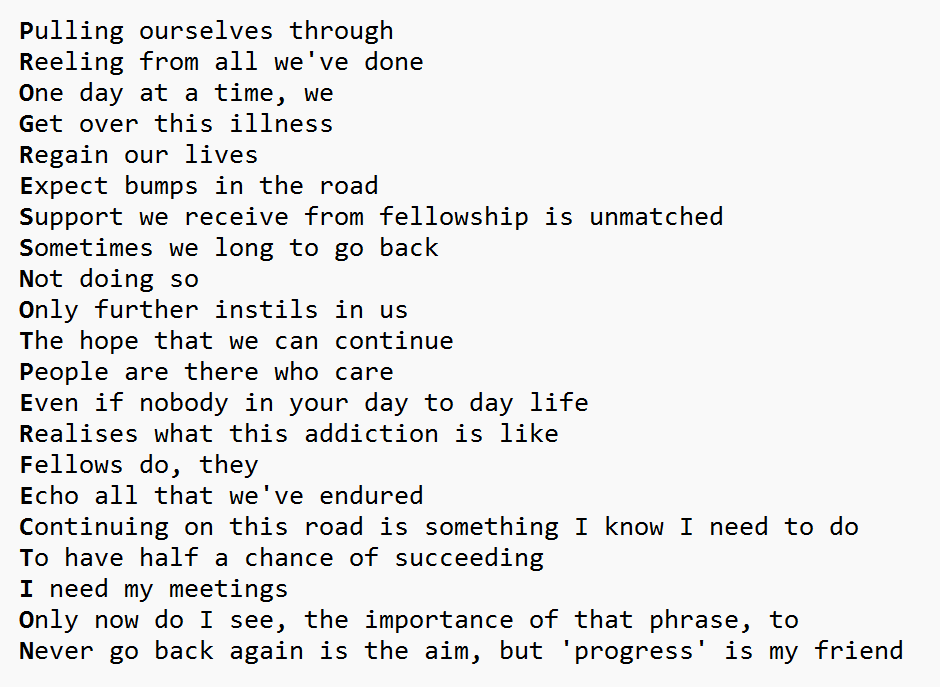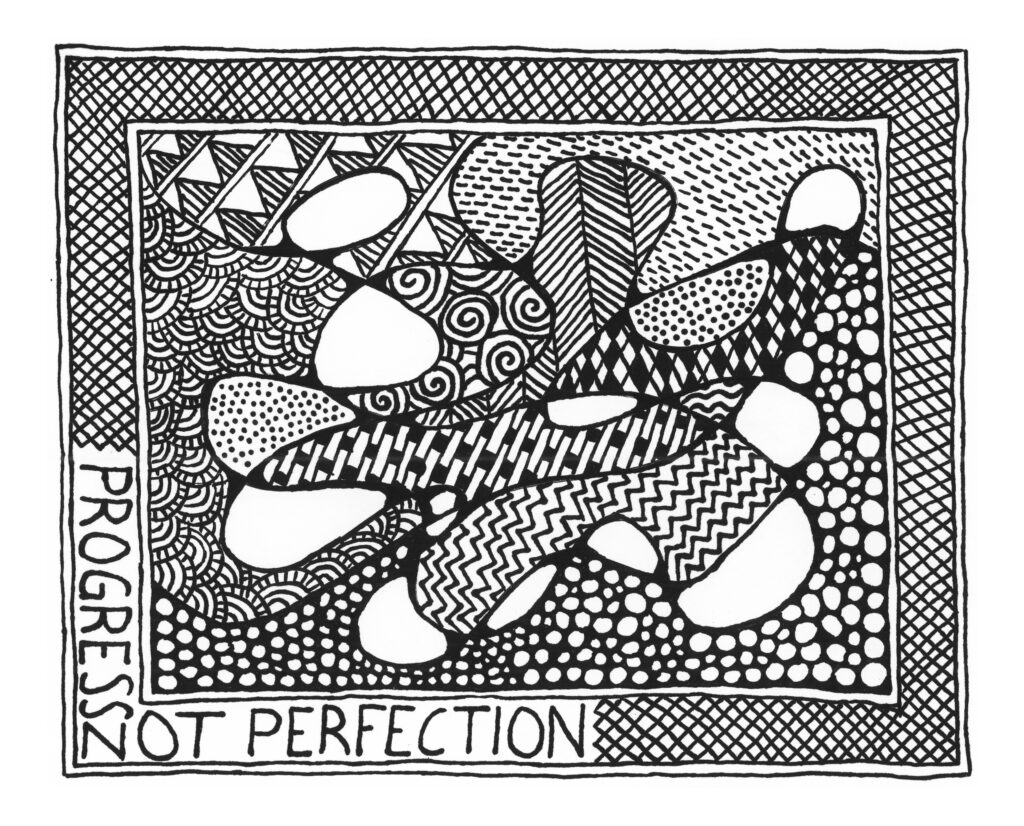Written by, Thia L.
I’m an addict. I’m also a “chronic relapser.” Sometimes in meetings I joke that “I’m the poster child to keep coming back.” It’s not really a joke. I’ve been coming back to the rooms over and over for the past 12 and a 1/2 years. I can’t count the number of times I’ve tried to stay sober and failed. One thing I’ve learned though, is that while relapsing might feel like failure, it isn’t really failing when I come back into the rooms and find I have learned something new that strengthens my recovery for the next go-around. When I look at it this way it makes more sense to me that some people say, “relapse is part of recovery.”
For as many relapses as I have had, there have been an equal number of triggers. A migraine headache that responded to nothing and lasted for days. A fight with a coworker. Being disciplined at work for crossing a hard boundary when I was just trying to learn. Having my sponsor quit me. (After that episode, I learned from a counselor that I am more sensitive to rejection than others and that this has a name: Rejection Sensitive Dysphoria, or RSD. It’s also why I landed in the hospital when I was disrespectfully dumped from a relationship via text message in 2020.) Not feeling any better, or sleeping any better, after 69 days of sobriety, when before I had felt better by day 46. Knowing more about these triggers, and why they happened, has helped me build in better support during my next attempts at recovery.
I keep coming back because every time I use again, I get back to my bottom quickly. For me this looks like using all night every night, all day on the weekends, and maybe even sneaking in a dose during lunch hour and breaks at work. At work, I am rocked by my unregulated emotions, driven to conflicts with coworkers and supervisors, or I miss critical details and tasks due to my drug-induced brain fog. At home, I’m a vegetable, sitting on the couch in front of the TV, achieving nothing, passing out and waking up in my clothes the next morning with a horrible taste in my mouth because I didn’t clean my teeth. Then I get up and do it all again, and the days slip away like sand through my fingers. I consider ending my life because I feel it’s worth nothing.
I keep coming back because each time I do, I see again and remember how my life improves with sobriety and working the Steps, and I see it in my fellows, too. I get in touch with my Higher Power, and I strive for a daily relationship. Whenever I see or hear a crow, it’s my cue to remember my Higher Power and appreciate the presence of the divine in my life. My mood stabilizes after a while and slowly gets more even. I don’t snap at people or situations. I stop isolating and start spending more time with my family and friends. I start doing activities that bring me joy: I go to karaoke parties, attend church and sing along with the hymns, go to concerts and dance, watch movies, and write in my journal. I start to feel again that I have worth and want to live. I remember that I love myself and I want to be happy, joyous, and free. I see my Higher Power working in my life. Good things start to happen. I start addressing my problems, and weathering the storms feels possible.
“Why do you have to keep coming back?” you might ask me. “Why not just stay? You know you don’t ever have to use again!” Well, for me it doesn’t feel that simple. I think I have more things working against me than some of my fellow addicts. I have a history of complex trauma (many childhood years surviving neglect and abuse) and traumatic events through young adulthood. I have known for the past 20 years, since my first psychiatric hospitalization, that I’m a Highly Sensitive Person (HSP), and in just the past year and a half, I learned that I have late-diagnosed Autism Spectrum Disorder, Level 1 – which means I have lived my life for over 50 years not knowing, yet having to try to get along in the world with it anyway. No wonder I have suffered major depression for almost my entire life. I have been using substances and other addictive behaviors to cope with everything for most of that time, because of just not knowing how to cope otherwise.
I keep coming back because with each relapse, I learn a little more about what I need to do to stay sober. Take care of my physical health needs. Address sleep problems, because good sleep is the bedrock of mental health. Talk about and release grievances towards housemates, family, and coworkers right away. Get away from situations in which others are using. Ensure a safe living environment where sensory triggers like noise, bright light, and strong smells are eliminated or controlled. Attend counseling for help with emotional challenges and thinking errors that worsen depression. Attend meetings, care for my relationship with my sponsor, and work the Steps. There are so many things that make up a good program for me! Sometimes it feels too hard to keep up on all of them, but I keep trying.
I keep coming back because I think, “One day, I’m going to figure out how to make this program work for me.” During my last relapse, I kept going to one or two meetings a week, even when I was high, to “keep my toe in the water.” I got back at it after just two months of using. Today, I am two weeks sober. I keep coming back because I know: it works when I work it, and I’m worth it!







